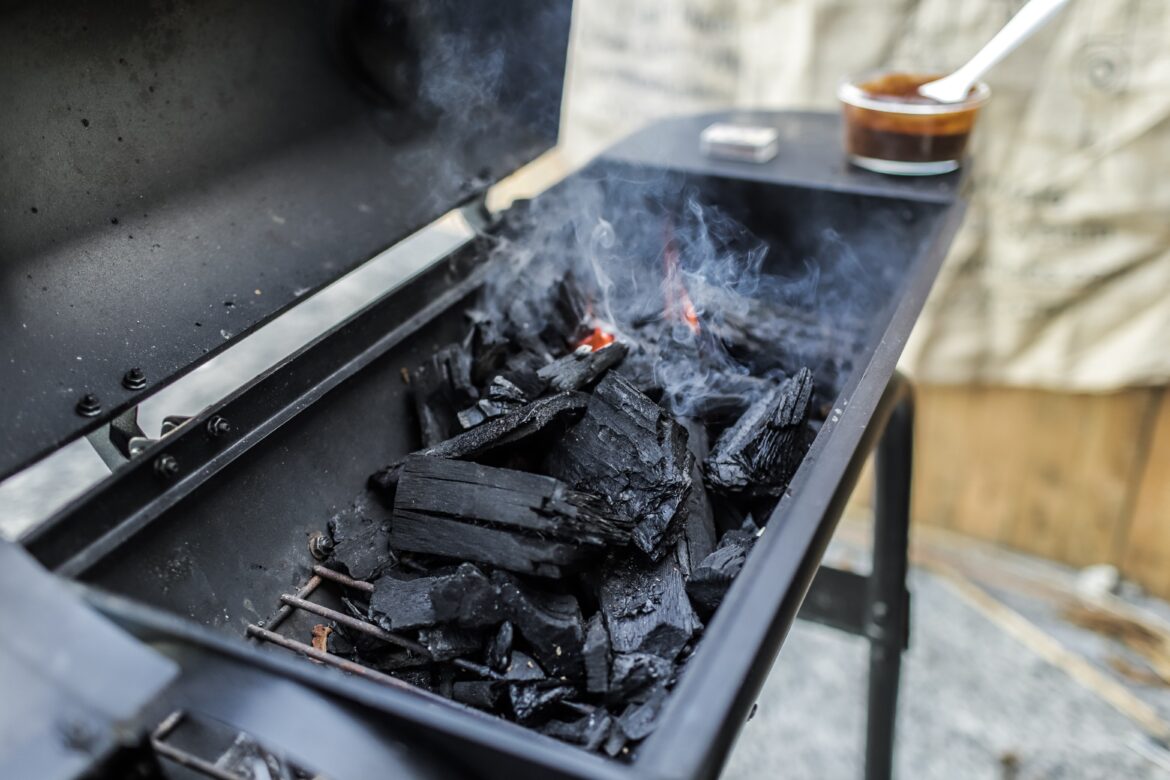Grilling is more than just a cooking technique; it’s an art, a love language for all food enthusiasts who believe in crafting the most delish meals. It’s all about that smoky aroma wafting through the air and that unique, succulent taste that transports you to a different world. Yet, the heart of this magical experience lies in an age-old debate: charcoal vs briquettes. Which one is the fuel for your BBQ grilling escapade?
Direct Grilling with Charcoal and Briquettes
When it comes to direct grilling—searing your food directly over high heat—both lumpwood charcoal and BBQ briquettes can lead you to a delicious dinner.
Charcoal, for instance, burns hotter, making it perfect for grilling beef, giving you a perfectly seared, delicious steak. Since it burns quickly, lumpwood charcoal is best suited for quick grilling endeavours, such as our teriyaki BBQ chicken wings or the popular spicy BBQ chicken wings.
Briquettes, on the other hand, provide consistent, long-lasting heat—perfect for your low and slow barbecuing needs. This makes them ideal for indirect grilling, giving you perfectly smoked pork or a divinely grilled chicken.
Indirect Grilling and Two-Zone Grilling
Mastering the art of indirect grilling and two-zone grilling allows you to cook like a pro, and the choice between charcoal and briquettes plays a key role here.
Indirect grilling allows you to cook larger cuts of meat slowly and thoroughly, like a delightful, delish brisket or ribs. This is where briquettes come into play with their long-lasting burn time, providing a steady temperature for hours. Take a look at our secret to perfect BBQ ribs, and you’ll understand why the steady temperature matters!
In two-zone grilling, you separate your grill into a hot direct-heat zone and a cooler indirect-heat zone. Our direct vs indirect grilling guide outlines how this technique can give your meals that delectable, smoky flavor. Charcoal’s intense heat is fantastic for searing on the hot side, while briquettes ensure your food is cooked through on the cooler side. Just ensure to use tongs for easy flipping.
Essential Tools and Safety
Every grill master needs some essential tools: a charcoal chimney starter to get your charcoal or briquettes heated evenly, a meat thermometer to ensure your meat is perfectly cooked, and safety tools to prevent any mishaps. Check out our grilling safety tips for more information.
Unleashing the Flavour: The Impact of Charcoal and Briquettes
Beyond heat management, the choice of charcoal vs briquettes also affects the flavor of your food. For the purists, nothing quite matches the smoky, rich flavor that lumpwood charcoal imparts. It’s made from hardwood and contains no additives, allowing the natural flavor of the meat to shine through. Try it out with our honey BBQ chicken wings recipe, and you’ll notice the difference.
Briquettes, however, burn longer and more evenly, providing a consistent smoke that penetrates your food for a distinct taste. Especially when slow-cooking meats, briquettes can infuse a deep, robust flavor that lingers on your taste buds. Check out our guide on the essential summer BBQ marinades to complement this smoky flavor.
Grill Types and Your Fuel Choice
The type of grill you own can also influence your choice between charcoal and briquettes. Traditional charcoal grills and kamado grills—like the ones discussed in our kamado BBQ post—offer versatility and allow you to use either charcoal or briquettes.
Charcoal grills, due to their design and ventilation, can reach high temperatures quickly, making them ideal for a fast grilling session. Lumpwood charcoal, with its high heat output and fast burn time, fits right in here.
Kamado grills, on the other hand, are ceramic grills known for their heat retention, making them perfect for long, slow cooking sessions. Briquettes, with their consistent and long-lasting heat, work wonderfully in these types of grills.
Environmental Considerations: Charcoal vs Briquettes
In the era of sustainable living, it’s worth considering the environmental impact of your grilling fuel. Charcoal, being a natural product made from hardwood, seems like an eco-friendly choice. However, it’s worth noting that some charcoals are made from unsustainable sources.
Briquettes, while they do contain additives and fillers, often use waste wood products, making them a recycling success story. If you want to ensure an environmentally conscious BBQ grilling session, look for briquettes made from sustainable sources or charcoal certified as sustainably produced.
So, Charcoal or Briquettes?
In the end, whether you choose charcoal or briquettes often boils down to personal preference. If you value intense heat and a quick grilling session, charcoal could be your go-to. But if you’re a fan of slow and steady grilling, briquettes might be your best bet. Consider the kind of food you’re grilling and the technique you’re using. Is it a quick-sear grilling chicken, or a long-haul grilling beef brisket? Each technique will fare better with different fuel.
One thing’s for sure, though—whether you opt for charcoal or briquettes, you’re in for an outdoor grilling adventure that results in a meal that’s nothing short of delicious.

